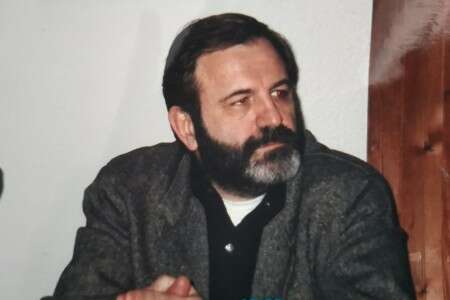Since its creation in 1993, Belgrade Open School witnessed several states of emergency in our society. We asked Dragica Bakic-Vucinic, BOS financial director, and Marinko Vucinic, one of the BOS founders and Future Studies Programme board member, how did the work look like back in 1999, the time of the first state of emergency in BOS history."In lives, especially these longer ones, there are many states of emergency" Dragica starts the story and continues: "Personal states of emergency were of our own making, in one way or the other. States of emergency proclaimed by the state affect our lives greatly but remain beyond our control. We fight against that in various ways in order to remain human. During the NATO aggression, the whole BOS team found itself in that situation. The very first thing we did was: suspend the lectures (the last one was held by professor Milan Vukomanovic). Get away from Beogradjanka, which was perceived as a potential target, and survive, that was the primary goal. However, only a few days after the chaos started, students asked for lectures to continue. We found an empty flat in Obilicev venac where the lectures started again. Faculties are closed and it would be great to do something special, that was the attitude of the students. But what about the professors? Are they ready as well to hold lectures on the modules Personality psychology and Clash of civilizations, all while the missiles fly over their heads? Of course, they said, only if students are willing. These great young people, which felt a deep connection and the need for different truths and interpretations of reality, led the BOS through that difficult time of fear and powerlessness. The amalgam created then has lasted to this day. All of us realized our potential in those unimaginable conditions and felt proud of ourselves and the people with whom we overcame those challenges. And that is how the first, war-induced state of emergency passed. We thought: never again. But when the people at BOS are concerned, no state of emergency exists when there is strength and will to overcome it."
Marinko remembers this period as a very important for the School's development: "And so the School became the place of our gathering and had a sort of a therapeutical effect. It was almost eerie when, during the lectures, you could hear the sounds of sirens and explosions. But, as far as I can remember, no sense of fear or nervousness was present. The School was in a way a sanctuary and safe haven for all of us. The new space had a large terrace on which the lectures were held. The social contacts were crucial during the bombardment, and BOS had an important role in that. During the lecture breaks, most of the students and employees were having discussions, shared information and enjoyed the views of the Sava river from the terrace. This produced a positive and relaxed atmosphere which all of us needed in those days."

